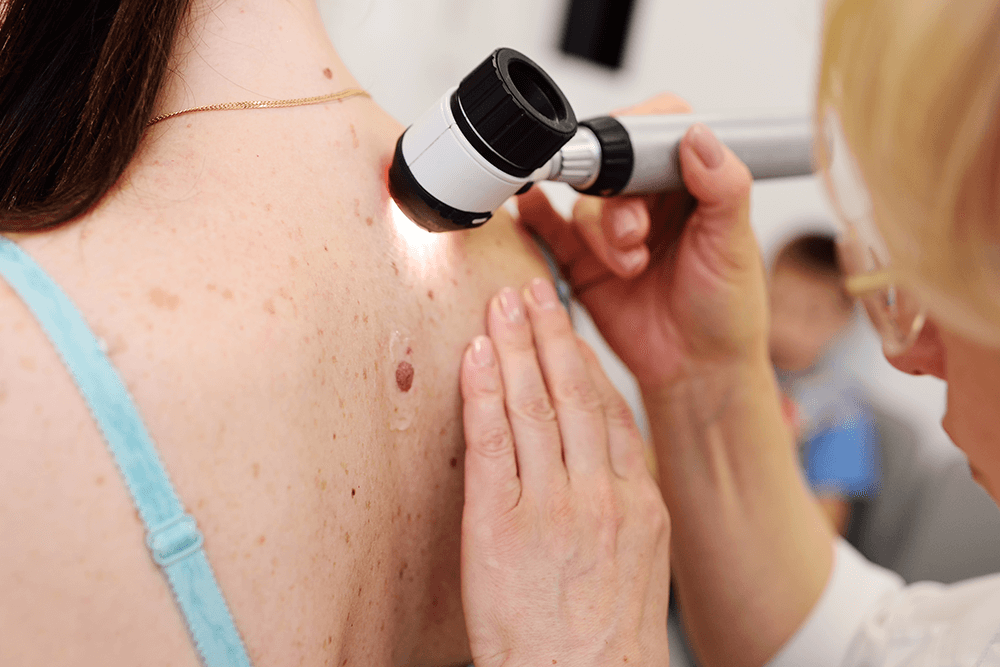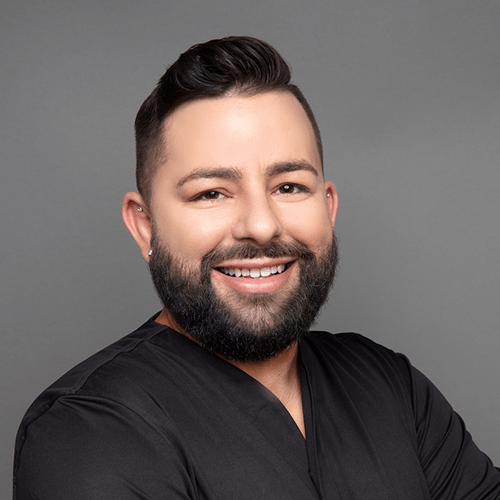The+Source
May heralds the coming shift from spring to summer (yay, vacation!) and also doubles as Melanoma Awareness Month. Skin cancer is the most common type of cancer in the United States, and while melanoma is the third most common type of skin cancer, it’s the most fatal form. According to the American Cancer Society, the number of melanoma deaths is expected to increase by 4.4 percent in 2023.
However, things aren’t all doom and gloom. Melanoma is also one of the most highly preventable types of cancer. However, to do that, you need to know where to start. Here are four beyond easy ways to help lower your risk and the risk of those you know from developing melanoma.
#1 Spread the word
A key component of Melanoma Awareness Month is awareness. As with many types of cancer, early detection of melanoma greatly increases a patient’s survival rate. However, many people don’t know what they should look for or even that they should be looking at all. Doctors have simplified melanoma’s warning signs into a condensed list called the ABCDEs of melanoma. The letters stand for Asymmetry, Border, Color, Diameter, and Evolving. (For detailed explanations — and pictures! — visit the American Academy of Dermatology’s website.) If you or someone you know sees any change in an existing mole or pigmented spot that falls into one of those five categories, get to a dermatologist stat. You can also lead by example, which brings us to the next way you can participate in Melanoma Awareness Month.
#2 Book your annual skin check
Each year, you should have a dermatologist perform a full-body skin check to look for any suspicious moles or other concerning areas. While it’s important that you also monitor your skin at home throughout the year (more on that in a sec), a doctor can see areas you may miss, like your back and scalp. Plus, a dermatologist is trained to recognize anything that appears off. This is important because while 20 to 30 percent of melanoma is found in a wonky mole, the remaining 70 to 80 percent occurs in skin that looks totally, completely normal.
The annual skin check rule applies to everyone, regardless of skin tone, because skin cancer is an equal opportunity cancer. In skin of color, it often crops up on non-exposed areas, such as the soles of the feet or palms of the hands. You’ll want to arrive at your appointment with bare nails (skin cancers can develop on your nail beds) and a clean face (one person’s dark spot is another’s early-stage skin cancer). Since a dermatologist-performed skin check is a medical appointment, it’s likely your health insurance will cover at least part of the bill.
During the rest of the year, you’ll want to give yourself a monthly once-over to monitor for any skin changes that are new or different since your last review. A thorough self-exam involves a bright light, mirrors, and the patience to inspect every inch of your skin. For a detailed step-by-step guide, check out the Skin Cancer Foundation’s website.
#3 Commit to sun safety
According to a study published in the Journal of Clinical Oncology, wearing a sunscreen with an SPF of 15 or higher every single day cuts a person’s risk of developing melanoma by 50 percent. Couple that with the fact that diligent, consistent sunscreen application also guards skin against visible UV-induced damage (think fine lines, wrinkles, sagging, and dark spots, for starters), and it’s a win-win.
Ideally, you’d also stay indoors or in the shade when the sun is at its peak, typically between 10 a.m. and 4 p.m. But we also realize that a beach vacation isn’t too fun when you only get to splash in the ocean before dawn or after dusk. So, do us a favor and be sure you’re applying enough sunscreen to do the job, OK? That means at least one ounce of lotion (the equivalent of a full shot glass) to cover your entire face and body. And don’t forget about the tops of your feet and ears; the backs of your neck and knees; the part in your hair; and the backs of your hands. After two hours outdoors (or anytime you come out of the water), repeat the process.
Since sunscreen expires, May is also a good time to check the expiration date on any bottles of SPF you have lying around from last year and throw away anything past its prime. (The date should be printed on the package.)
It also bears repeating that tanning beds are as passé as a VHS player. The idea that indoor tanning provides a “base” that keeps skin from burning later is a long-debunked myth. And today’s self-tanner formulations are easy to use, provide that coveted golden glow, and won’t damage your skin or lead to cancer. What’s not to love?
#4 Support melanoma research
At Dr. Dennis Gross Skincare, we’re proud to support Memorial Sloan Kettering Cancer Center in New York City. Our dermatologist founder Dennis Gross, MD, got his start as a melanoma researcher there, and the Center’s research arm has been a leader in modern biomedical science, making cutting-edge discoveries and developing breakthrough treatments for all types of cancer, for decades.
To join us in supporting the groundbreaking research being done at Memorial Sloan Kettering Cancer Center, you can donate here.







